The Sicilian: A Novel
9.00 JOD
Please allow 2 – 5 weeks for delivery of this item
Add to Gift RegistryDescription
After Mario Puzo wrote his internationally acclaimed The Godfather, he has often been imitated but never equaled. Puzo’s classic novel, The Sicilian, stands as a cornerstone of his work—a lushly romantic, unforgettable tale of bloodshed, justice, and treachery. . . .The year is 1950. Michael Corleone is nearing the end of his exile in Sicily. The Godfather has commanded Michael to bring a young Sicilian bandit named Salvatore Guiliano back with him to America. But Guiliano is a man entwined in a bloody web of violence and vendettas. In Sicily, Guiliano is a modern day Robin Hood who has defied corruption—and defied the Cosa Nostra. Now, in the land of mist-shrouded mountains and ancient ruins, Michael Corleone’s fate is entwined with the dangerous legend of Salvatore Guiliano: warrior, lover, and the ultimate Siciliano.Praise for The Sicilian“Puzo is a master storyteller.”—USA Today “The Balzac of the mafia.”—Time“An accomplished and imaginative writer.”—Los Angeles Times
Additional information
| Weight | 0.21 kg |
|---|---|
| Dimensions | 2.67 × 10.47 × 17.51 cm |
| PubliCanadation City/Country | USA |
| Author(s) | |
| Format | |
| language1 | |
| Pages | 416 |
| Publisher | |
| Year Published | 2001-5-1 |
| Imprint | |
| ISBN 10 | 0345441702 |
| About The Author | Mario Puzo was born in New York and, following military service in World War II, attended New York's New School for Social Research and Columbia University. His bestselling novel The Godfather was preceded by two critically acclaimed novels, The Dark Arena and The Fortunate Pilgrim. In 1978, he published Fools Die, followed by The Sicilian, The Fourth K, and the second installment in his Mafia trilogy, The Last Don. Mario Puzo also wrote many screenplays, including those for Earthquake, Superman, and all three Godfather movies, for which he received two Academy Awards. He died in July 1999 at his home on Long Island, New York, at the age of seventy-eight, just after completing the manuscript of his novel, Omerta. |
“Puzo is a master storyteller.”—USA Today “The Balzac of the mafia.”—Time“An accomplished and imaginative writer.”—Los Angeles Times |
|
| Excerpt From Book | MICHAEL CORLEONE STOOD on a long wooden dock in Palermo and watched thegreat ocean liner set sail for America.He was to have sailed on thatship,but new in- structions had come from his father. He waved goodbye to the men on the little oshing boat who had brought him to thisdock,men who had guarded him these past years.The oshing boat rode thewhite wake of the ocean liner,a brave little duckling after its mother.The men on it waved back;he would see them no more. The dock itself was alive with scurrying laborers in caps and baggy clothes unloading otherships,loading trucks that had come to the long dock.They were small wirymen who looked more Arabic than Italian,wearing billed caps thatobscured their faces.Amongst them would be new body- guards making surehe came to no harm before he met with Don Croce Malo,Capo di Capi of the"Friends of the Friends,"as they were called here in Sicily.Newspapersand the outside world called them the Ma oa,but in Sicily the word Ma oanever passed the lips of the ordinary citizen.As they would never callDon Croce Malo the Capo di Capi but only "The Good Soul." In his two years of exile in Sicily,Michael had heard many tales about DonCroce,some so fantastic that he al- most did not believe in theexistence of such a man.But the instructions relayed from his father were explicit: he was ordered to have lunch with Don Croce this very day.And thetwo of them were to arrange for the escape from Sicily of the country 's greatestbandit, Salvatore Guiliano. Michael Corleone could not leave Sicilywithout Guiliano. Down at the end of the pier,no more than fifty yards away,a huge dark car was parked in the narrow street. Standing before itwere three men,dark rectangles cut out of the glaring sheet of lightthat fell like a wall of gold from the sun.Michael walked toward them.Hepaused for a moment to light a cigarette and survey the city. Palermo rested in the bottom of a bowl created by an extinctvolcano,overwhelmed by mountains on three sides, and escaping into thedazzling blue of the Mediterranean Sea on the fourth side.The cityshimmered in the golden rays of the Sicilian noon-time sun.Veins of redlight struck the earth,as if re oecting the blood shed on the soil ofSicily for countless centuries.The gold rays bathed stately marblecolumns of Greek temples,spidery Moslem turrets,the oercely intricatefacades of Spanish cathedrals;on a far hill- side frowned thebattlements of an ancient Norman castle. All left by diverse and cruelarmies that had ruled Sicily since before Christ was born.Beyond thecastle walls,cone- shaped mountains held the slightly effeminate city ofPalermo in a strangler 's embrace,as if both were sinking gracefully totheir knees,a cord pulling tightly around the city 's neck.Farabove,countless tiny red hawks darted across the brilliant blue sky.Michael walked toward the three men waiting for him at the end of thepier.Features and bodies formed out of their black rectangles.With eachstep he could see them more clearly and they seemed to loosen,to spreadaway from each other as if to envelop him in their greeting. All three of these men knew Michael 's history.That he was the youngest son of thegreat Don Corleone in America, the Godfather,whose power extended eveninto Sicily.That he had murdered a high police of ocial of New York Citywhile executing an enemy of the Corleone Empire.That he had been inhiding and exile here in Sicily because of those murders and that nowonally,matters having been "arranged,"he was on his way back to hishomeland to re- sume his place as crown prince to the Corleone Family.They studied Michael,the way he moved so quickly and ef- fortlessly,hiswatchful wariness,the caved-in side of his face which gave him the lookof a man who had endured suffering and danger.He was obviously a man of"respect." As Michael stepped off the pier the orst man to greet him wasa priest,body plump in cassock,his head crowned by a greasy batlikehat.The white clerical collar was sprinkled with red Sicilian dust,theface above was worldly with oesh. This was Father Benjamino Malo,brother to the great Don Croce.He had a shy and pious manner,but he was devoted to his renowned relative and never oinched at having the devil so close to his bosom.The malicious even whis- pered that he handed overthe secrets of the confessional to Don Croce. Father Benjamino smiled nervously as he shook Michael 's hand and seemed surprised andrelieved by Michael 's friendly,lopsided grin,so unlike that of afamous murderer. The second man was not so cordial,though polite enough.This was Inspector Frederico Velardi,head of the Security Policeof all Sicily.He was the only one of the three who did not have awelcoming smile on his face.Thin and far too beautifully tailored for aman who received a gov- ernment salary,his cold blue eyes shot twogenetic bullets from long-ago Norman conquerors.Inspector Velardi couldhave no love for an American who killed high-ranking police ofocials.He might try his luck in Sicily.Velardi 's hand- shake was likethe touching of swords. The third man was taller and bulkier;he seemed huge beside the other two.He imprisoned Michael'shand,then pulled him forward into an affectionate embrace."Cousin Michael,"hesaid."Welcome to Palermo."He drew back and regarded Michael with a fond but wary eye."I am StefanAndolini,your father and I grew up together in Corleone.I saw you inAmerica,when you were a child.Do you remember me?" Oddly enough Michael did remember.For Stefan Andolini was that rarest of all Sicilians,aredhead.Which was his cross,for Sicilians believe that Judas was aredheaded man.His face too was unforgettable.The mouth was huge andirregular,the thick lips like bloody hacked meat;above were hairynostrils,and eyes cavernous in deep sockets. Though he was smiling,itwas a face that made you dream of murder. With the priest,Michael understood the connection at once.But Inspector Velardi was asurprise.Andolini,carrying out the responsibility of a relative,carefully explained to Michael the Inspector's official capacity.Michael was wary. What was the man doing here?Velardi was reputed to be one of Salvatore Guiliano 's most implacable pursuers.Andit was obvious that the Inspector and Stefan Andolini disliked eachother;they behaved with the exquisite courtesy of two men readyingthemselves for a duel to the death. The chauffeur had the car door open for them.Father Benjamino and Stefan Andolini usheredMichael into the back seat with deferential pats.Father Benjamino insisted with Christianhumility that Michael sit by the window while he sat in the middle,forMichael must see the beauties of Palermo.Andolini took the other backseat.The Inspector had already jumped in beside the chauffeur.Michaelnoticed that Inspector Velardi held the door handle so that he couldtwist it open quickly.The thought passed through Michael 's mind thatperhaps Father Benjamino had scurried into the middle seat to makehimself less of a target. Like a great black dragon,the car moved slowly through the streets of Palermo.On this avenue rose graceful Moorish-looking houses,massive Greek-columned public buildings,Spanish cathedrals.Private houses painted blue, painted white,painted yellow,allhad balconies festooned with oowers that formed another highway above their heads. It would havebeen a pretty sight except for squads of cara- binieri ,the ItalianNational Police,who patrolled every corner, rifles at the ready.Andmore of them on the balconies above.Their car dwarfed the other vehicles surrounding it,especially the mule-drawn peasant carts whichcarried in most of the fresh produce from the countryside.These cartswere painted in gay,vivid colors,every inch of them down to the spokesof the wheels,the shafts that held the mules.On the sides of many cartswere murals showing helmeted knights and crowned kings in dramaticscenes from the legends of Charlemagne and Roland,those ancient heroesof Sicilian folklore.But on some carts Michael saw scrawled,beneath theogure of a handsome youth in moleskin trousers and sleeveless whiteshirt,guns in his belt,guns slung over his shoulder,a legend of twolines which always ended with great red letters that spelled out thename GUILIANO.During his exile in Sicily,Michael had heard a good dealabout Salvatore Guiliano.His name had always been in thenewspapers.People everywhere talked about him.Michael 'sbride,Apollonia,had confessed that every night she said prayers for thesafety of Guiliano,as did nearly all the chil- dren and young people ofSicily.They adored him,he was one of them,he was the man they alldreamed of becoming. Young,in his twenties,he was acclaimed a greatgeneral because he outfought the carabinieri armies sent against him.He was handsome and he was generous,he gave most of his criminalearnings to the poor.He was virtuous and his bandits were neverpermitted to molest women or priests.When he executed an informer or atraitor,he always gave the victim time to say his prayers and cleansehis soul in order to be on the best of terms with the rulers of the nextworld.All this Michael knew without being briefed. They turned off the avenue and a huge black-lettered poster on a house wall caught Michael's eye.He just had time to see the word GUILIANO on the top line.FatherBenjamino had been leaning toward the window and said,"It is one ofGuiliano 's proclamations.Despite everything he still controls Palermoat night." "And what does it say?"Michael asked. "He permits the people of Palermo to ride the streetcars again,"Father Benjamino said. "He permits?"Michael asked with a smile."An outlaw permits?" On the other side of the car Stefan Andolini laughed. "The carabinieri ride the tramsso Guiliano blows them up. But orst he warned the public not to usethem.Now he is promising not to blow them up anymore." Michael said dryly,"And why did Guiliano blow up trams full of police?" Inspector Velardi turned his head,blue eyes glaring at Michael."Because Rome inits stupidity arrested his father and mother for consorting with a knowncriminal,their own son.A Fascist law never repealed by the republic."Father Benjamino said with quiet pride."My brother, Don Croce,arrangedfor their release.Oh,my brother was very angry with Rome."Christ,Michael thought.Don Croce was angry with Rome?Who the hell wasthis Don Croce besides being pezzonovante in the Mafia? The car stopped in front of a block-long,rose-colored building.Blue minaretscrowned each separate corner.Be- fore the entrance an extraordinary,widegreen-striped canopy lettered HOTEL UMBERTO was guarded by two door- menstuffed into dazzling gold-buttoned uniforms.But Michael was notdistracted by this splendor. His practiced eye photographed the street in front of the hotel.He spotted at least ten bodyguards walking in couples, leaning against the iron railings.These men were not disguisingtheir function.Unbuttoned jackets revealed weapons strapped to theirbodies.Two of them smoking thin cigars blocked Michael 's path for amoment when he came out of the car,scrutinizing him closely –measuring him for a grave.Theyignored Inspector Velardi and the others. As the group entered the hotel,the guards sealed off the entrance behind them.In the lobby fourmore guards mate- rialized and escorted them down a long corridor.Thesemen had the proud looks of palace servants to an emperor. The end of the corridor was barred by two massive oaken doors.A man seated in ahigh,thronelike chair stood up and unlocked the doors with a bronzekey.He bowed,giving Fa- ther Benjamino a conspiratorial smile as he didso. The doors opened into a magni ocent suite of rooms;open Frenchwindows revealed a luxuriously deep garden be- yond,which blew in thesmell of lemon trees.As they en- tered Michael could see two men postedon the inside of the suite.Michael wondered why Don Croce was so heavilyguarded.He was Guiliano 's friend,he was the con odant of the Ministerof Justice in Rome and therefore safe from the carabinieri who olled thetown of Palermo.Then who,and what,did the great Don fear?Who was hisenemy? The furniture in the living room of the suite had been originallydesigned for an Italian palace –gargantuan arm- chairs,sofas as long anddeep as small ships,massive marble tables that looked as if they hadbeen stolen from museums.They suitably framed the man who now came infrom the garden to greet them. His arms were held out to embrace Michael Corleone. Standing,Don Croce was almost as wide as he was tall. Thick gray hair,crinkly as a Negro 's,carefully barbered, crowned a head massively leonine.His eyes were lizardly dark,two raisins embedded ontop of heavily oeshed cheeks.These cheeks were two great slabs ofmahogany,the left side planed smooth,the other creased with overgrownoesh.The mouth was surprisingly delicate,and above it was a thinmustache.The thick imperial spike of a nose nailed his face together.But beneath that emperor 's head he was all peasant. |
Only logged in customers who have purchased this product may leave a review.

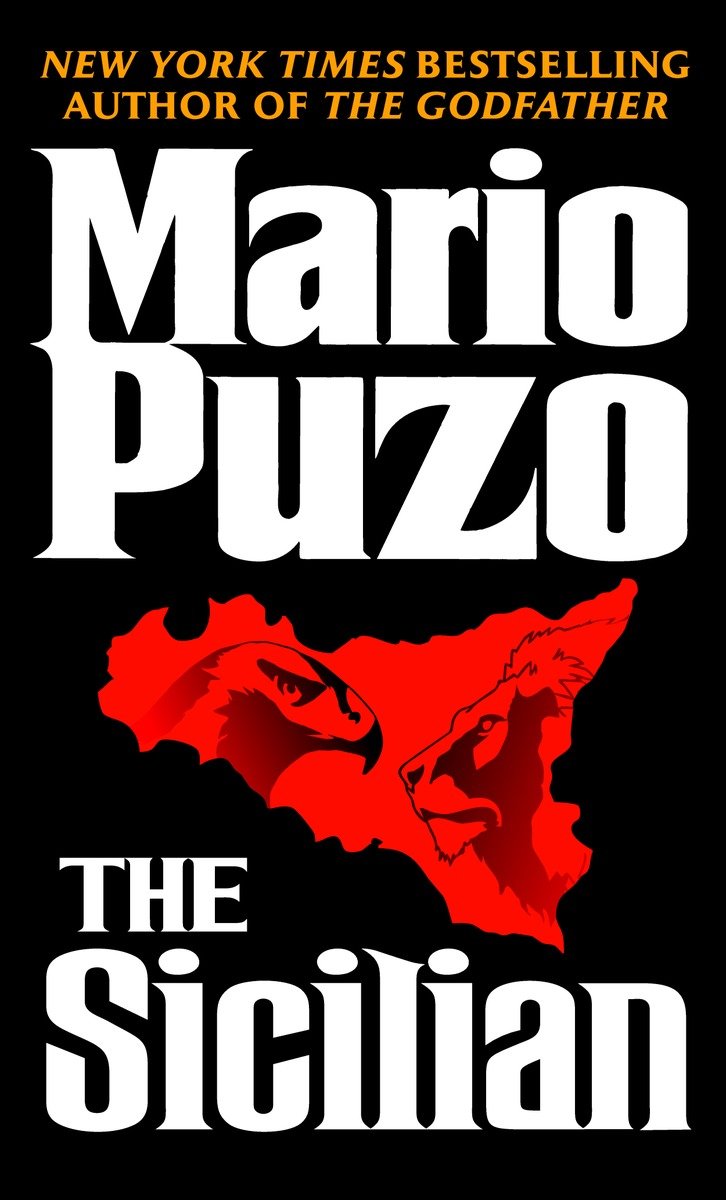
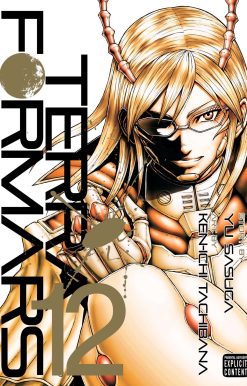
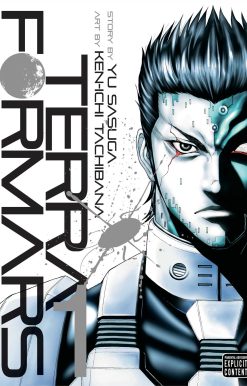
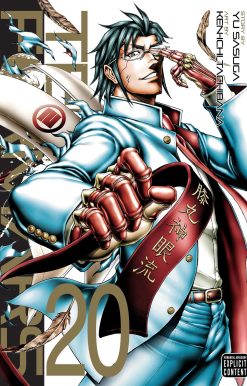
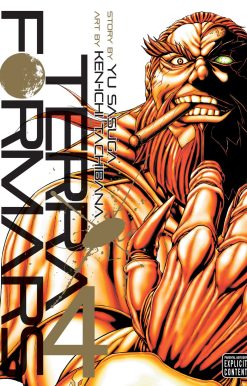
Reviews
There are no reviews yet.